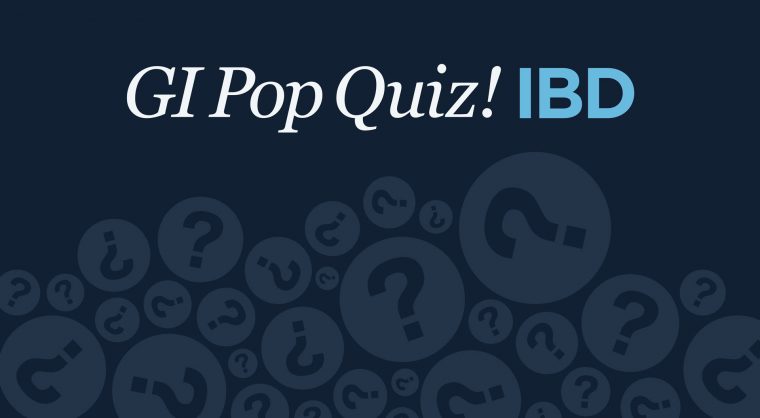Are you making the correct treatment choices when seeing IBD patients?
See how your treatment decisions compare with those of subject matter experts and your peers. GI Pop Quiz! IBD offers four short quizzes designed to educate and inform you on inflammatory bowel disease (IBD) patient risk stratification, therapeutic drug monitoring, and treatment strategies for optimizing disease remission.
The program will help you to better:
-
Determine appropriate treatment strategies and drug monitoring protocols for IBD patients.
-
Identify appropriate treatment strategies for high-risk patients.
-
Understand the use and efficacy of new and emerging biologic treatments.
Featuring case-based quizzes
At the start of each quiz, you will be presented with an individual case accompanied by questions designed to test your clinical decision-making skills in the context of patient and disease-specific variables.
The four case-based quizzes
1. Challenges with family planning and patients with IBD.
2. Application of guideline-specific treat-to-target strategies: primary non-response and/or loss of response to biologic.
3. Diagnosis and risk stratification of high-risk patient.
4. Application of guideline-specific treat-to-target strategies: remission maintenance.
The four case-based quizzes
- Challenges with family planning and patients with IBD.
- Application of guideline-specific treat-to-target strategies: primary non-response and/or loss of response to biologic.
- Diagnosis and risk stratification of high-risk patient.
- Application of guideline-specific treat-to-target strategies: remission maintenance.
After completing the quiz, you will be directed to a five-to-10-minute recorded case explanation provided by subject matter experts. Faculty will provide insights from approved guidelines and recommendations, as well as from their own personal experiences. At the close of the activity, you will complete a self-evaluation, assessing how your approach compared with the expert.
After completing the evaluation, you will then be able to see how your responses compare with other learners to help you better understand your own knowledge gaps.












